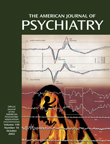Sibutramine and Panic Attacks
To the editor: Sibutramine, a nonamphetamine appetite suppressant, is a selective norepinephrine, serotonin, and—to a lesser extent—dopamine reuptake inhibitor (1). There have been previous reports of psychosis (2), depression, mood changes, palpitations, and chest tightness associated with sibutramine, and hypomania has been linked to the combination of sibutramine and citalopram (3). However, to our knowledge, there have been no reported exacerbations of panic attacks. We report on a patient who had a history of panic attacks and experienced a recurrence of panic symptoms shortly after starting sibutramine.
Ms. A, a 62-year-old woman, had been diagnosed as having panic attacks during her mid-20s and had been initially treated with anxiolytics. She had been panic-free without treatment since her mid-30s, except for two attacks, both of which had occurred after minor surgical procedures.
Ms. A started taking sibutramine, 10 mg/day, for weight loss. After 1½ weeks of taking sibutramine, she had two panic attacks in rapid succession. She discontinued the medication for several days and had no further attacks. She then restarted sibutramine and had another panic attack within approximately 3 days. She again discontinued sibutramine and has been asymptomatic for 5 months. Ms. A declined a third exposure to sibutramine. She was not unduly apprehensive about taking medication, and there were no obvious psychological stressors present at the time.
While it is not possible to definitively prove a causal relationship between sibutramine and panic attacks, the temporal relationship of the onset and disappearance of the panic attacks to the initiation and discontinuation of sibutramine is suggestive. With the Naranjo Adverse Drug Reactions Probability Scale (4), a high-probability relationship between sibutramine and the panic attacks was demonstrated in our patient. Although the mechanism for this reaction is unknown, physicians prescribing sibutramine should be aware of this potentially important side effect.
1. McNeely W, Goa KL: Sibutramine: a review of its contribution to the management of obesity. Drugs 1998; 56:1093-1124Crossref, Medline, Google Scholar
2. Taflinski T, Chojnacka J: Sibutramine-associated psychotic episode (letter). Am J Psychiatry 2000; 157:2057-2058Link, Google Scholar
3. Benazzi F: Organic hypomania secondary to sibutramine-citalopram interaction (letter). J Clin Psychiatry 2002; 63:165Crossref, Medline, Google Scholar
4. Naranjo CA, Busto U, Sellers EM, Sandor P, Ruiz I, Roberts EA, Janecek E, Domecq C, Greenblatt DJ: A method for estimating the probability of adverse drug reactions. Clin Pharmacol Ther 1981; 30:239-245Crossref, Medline, Google Scholar



